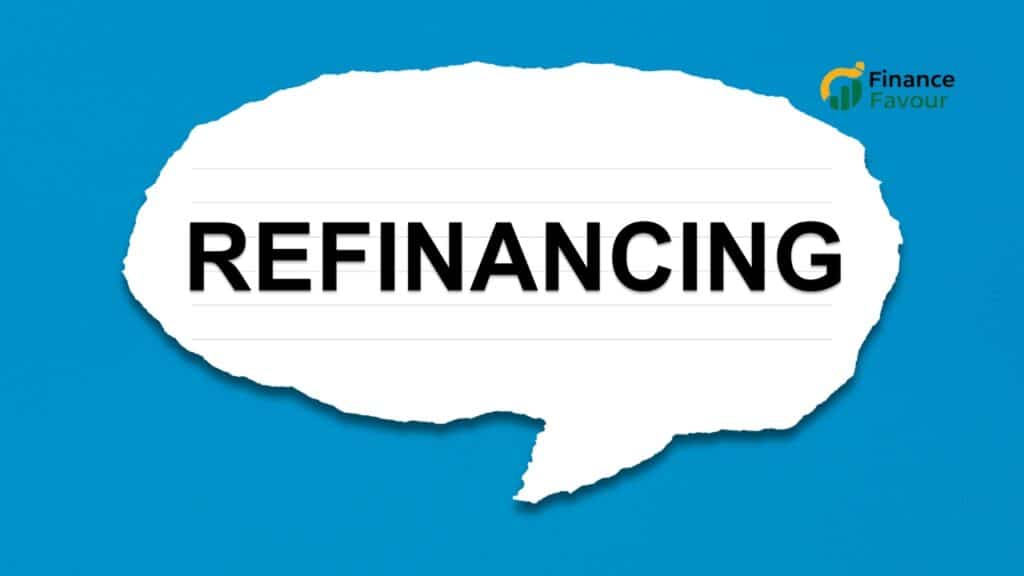Mortgage refinancing is a powerful tool to secure a lower interest rate or change your loan term. However, many homeowners hesitate because they fear a credit score crash. Does refinancing hurt or help your credit? The truth is, while you might see a temporary dip, a well-planned refinance can actually strengthen your financial profile in the long run. In this guide, we reveal the immediate impacts and long-term benefits of refinancing on your FICO score.
At a Glance: Credit Score Impact
| Initial Dip: | 5-10 points (due to hard inquiry). |
| Recovery Time: | Usually 3 to 6 months of on-time payments. |
| Long-Term Benefit: | Improved debt-to-income (DTI) ratio and lower monthly burden. |
Understanding Your FICO Score
Your FICO score is essentially your financial reputation. Lenders use it to gauge how risky it is to loan you money. It’s calculated using five main categories:
- Payment History (35%) – Do you pay your bills on time?
- Amounts Owed (30%) – How much of your available credit are you using?
- Length of Credit History (15%) – How long have you been using credit?
- New Credit (10%) – How many new accounts or inquiries do you have?
- Credit Mix (10%) – What types of credit do you use (credit cards, loans, etc.)?
Refinancing can touch on at least three of these: new credit, amounts owed, and length of credit history. That’s why understanding the FICO score formula is essential when evaluating whether refinancing is right for you.
The Initial Impact of Mortgage Refinancing on Your Credit Score
Hard Inquiries and Their Effect
The very first thing that happens when you start the refinancing process? A lender pulls your credit report. This is known as a hard inquiry, and it does affect your credit score, albeit slightly.
Each hard inquiry can lower your score by about 5 to 10 points. Now, that may not seem like a lot, but if you’re sitting right on the edge between a “good” and “very good” credit tier, it might mean a higher interest rate or even a denial of credit.
But here’s the kicker: this ding is temporary. Inquiries stay on your credit report for two years but only factor into your FICO score for the first 12 months. Even better? If you do all your rate shopping within a 14- to 45-day window (depending on the credit scoring model), multiple inquiries are usually counted as one. So, shop smart and fast.
Another factor that makes hard inquiries less scary? They only make up 10% of your overall score. If your credit history is solid, you’ll recover from that dip in no time.
How Rate Shopping is Treated Differently
One of the most common myths is that applying with multiple lenders will destroy your credit. In reality, the FICO algorithm understands that borrowers need to shop around. If you complete all your applications within a 14-to-45-day window, they are typically treated as a single hard inquiry. This “shopping period” is your best friend when looking for the best rates without hurting your score.
If you are considering a refinance to buy a Turnkey Rental Property, make sure your credit is ready.
Long-Term Credit Score Implications
Closing Old Accounts and Its Impact
Here’s something many homeowners don’t realize: when you refinance, your original mortgage account is closed, and a new one is opened. That can mess with your credit history in a couple of ways.
First, closing your original loan could impact the average age of your credit accounts. Length of credit history accounts for 15% of your FICO score, and older accounts generally help you look more reliable. So, wiping out that decade-old mortgage could trim some points off your score.
Second, if your old mortgage was your only installment loan, closing it could reduce your credit mix, which contributes about 10% to your score. It’s like losing one of your financial juggling balls your profile might seem a little less balanced.
Does this mean refinancing is a bad idea? Not necessarily. The age of the closed mortgage still remains in your credit report for up to 10 years, so its positive impact doesn’t disappear overnight. But yes, for the first few months post-refinance, your credit score may seem a bit under the weather.
New Account Age and Average Credit History
When you take on a new mortgage through refinancing, it resets the clock on that account’s credit age. Lenders may look at your average account age and think, “Hmm, this person just opened a brand-new loan.” Even if you’ve been a stellar borrower for 15 years, that new account appears “young” in the eyes of your credit report.
This temporary dip is why you might see a small score reduction for the first few months after refinancing. The algorithm is cautious it wants to see how you handle this new obligation before bumping you back up.
Think of it as a probation period. Pay on time, don’t open a bunch of new credit accounts, and you’ll not only recover but might even end up with a higher score than before.
Positive Effects of Refinancing on Credit
Lower Credit Utilization Ratio
Although your mortgage doesn’t count toward your credit utilization ratio (which typically applies to revolving credit like credit cards), refinancing can improve your overall debt profile in other meaningful ways.
For instance, if you do a cash-out refinance and use that cash to pay down high-interest credit cards, your utilization ratio will improve dramatically. Lower utilization equals a higher credit score. It’s like giving your score a jolt of energy.
So yes, while the mortgage itself doesn’t factor into utilization, the domino effect of using refinance funds wisely can work in your favor. It’s like shifting pieces on a chessboard to open up a winning strategy.
And let’s not forget the psychological benefit less financial stress, fewer high-interest payments, and more breathing room in your monthly budget. That alone can keep you from racking up future debt, which indirectly boosts your FICO score in the long run.
Improved Payment History with Better Terms
One of the biggest reasons people refinance is to secure better terms a lower interest rate or more manageable monthly payments. And that’s a good thing for your FICO score.
Why? Because if your new mortgage payment is easier to handle, you’re more likely to make payments on time. And as we covered earlier, payment history makes up 35% of your FICO score. It’s the single biggest factor. Missing payments is like the death knell for your credit score, while consistent, on-time payments are the secret sauce for improving it.
So, if refinancing sets you up for success by reducing your monthly burden or extending your term to make payments more manageable you’re actually helping your credit score in the long run.
Think of refinancing not just as a financial move, but a credit strategy. Lower payments = less risk of default = higher credit score. It’s simple math with powerful results.
Managing Credit Health During Refinancing
Monitoring Your Credit Reports
When you’re in the midst of a refinance or even just considering it your first step should be pulling your credit reports. Yes, plural. You’ve got three major credit bureaus (Experian, Equifax, and TransUnion), and each one may have slightly different data. Checking all three gives you the full picture.
You’re entitled to one free credit report per bureau each year via AnnualCreditReport.com, and during times of economic stress or policy updates, this may even be available more frequently.
Why is this important during refinancing? Because errors happen. Maybe a loan you paid off still shows a balance, or a late payment that wasn’t late is misreported. These discrepancies can tank your credit score at the worst possible time—right when lenders are scrutinizing every detail.
Spot something fishy? Dispute it immediately. Each bureau has an online dispute process, and while it can take 30 days or so to resolve, it’s worth the effort.
Staying proactive here is like tuning your car before a road trip. Catch the problems early, and the journey (refinance approval) will go much smoother.
Avoiding New Debt While Refinancing
Here’s a rule that many ignore (and regret): Don’t open new lines of credit while you’re in the middle of refinancing. That includes everything from credit cards and car loans to financing that shiny new couch set.
Why? Because each new application triggers a hard inquiry and changes your debt-to-income ratio a key factor lenders look at when approving your refinance. If your financial profile suddenly shifts mid-process, the lender might think twice about approving or may offer you worse terms.
Even if you get approved, a fresh credit card or retail loan can cause your score to drop just enough to push you into a less favorable interest rate bracket.
So play it safe. Delay any major credit moves until your new mortgage is finalized and closed. Think of it as putting your credit life on pause for a month or two you’ll thank yourself later.
Factors Lenders Consider Besides Credit Score
Debt-to-Income Ratio
While your FICO score gets a lot of attention, it’s not the only metric lenders care about. Your debt-to-income ratio (DTI) is just as important sometimes even more.
DTI compares your monthly debt payments (credit cards, car loans, student loans, etc.) to your monthly gross income. The lower this ratio, the better. Most lenders prefer a DTI under 43%, though 36% or less is ideal for snagging top-tier rates.
Refinancing can either help or hurt your DTI. If you’re consolidating debts or lowering your mortgage payments, it’ll look great. But if you’re doing a cash-out refinance and taking on more total debt, your DTI could increase.
Lenders use this ratio to assess how comfortably you can handle your new mortgage. So if your DTI is already high, refinancing might not be the magic bullet you hoped for at least not without addressing your other obligations.
Want a better refinance deal? Work on reducing your DTI before you apply. Pay down small loans or increase your income (side hustles count too). Every point counts.
Employment History and Income Stability
Your income isn’t just about how much you make it’s about how reliable that income is. Lenders want to see a steady employment history, ideally two years or more with the same employer or within the same field.
This helps them feel confident that you can meet your mortgage obligations over time. A solid job history can even help offset a slightly lower credit score or high DTI.
Freelancers and self-employed individuals may need to provide more documentation, like tax returns, profit-and-loss statements, and bank records. That’s because variable income is riskier in the eyes of a lender.
If you’ve just switched jobs or changed industries, be prepared for more scrutiny. Some lenders may even delay approval if they feel your income is uncertain.
Bottom line? Keep your financial profile stable during the refinancing process. If you’re considering a job change, wait until after your refinance is finalized especially if your new role is commission-based or in a different industry.
Strategies to Minimize Negative Credit Impacts
Time Your Applications Wisely
Timing isn’t just for comedy it’s crucial in credit management too. As mentioned earlier, rate shopping within a specific window (usually 14 to 45 days) ensures that multiple inquiries only count as one. But there’s more to timing than just that.
Avoid applying for other major loans (car, credit cards, etc.) in the three to six months leading up to your refinance. This helps ensure your score is as high as possible when you submit your application.
Also, try to refinance when your score is at its peak. Just paid off a major loan? Credit card balances low? Been paying everything on time for months? That’s the sweet spot. Strike while your credit is strong, and you’ll secure better terms.
Timing your refinance for seasonal promotions can also help. Lenders may offer better rates during slower months to boost business. Do your research, and don’t be afraid to negotiate especially if your credit and income look good.
Maintain Healthy Credit Habits
Refinancing doesn’t give you a pass on your usual credit responsibilities. In fact, it’s the perfect time to double down on good habits. This includes:
- Paying all bills on time every single one
- Keeping credit card balances low (under 30% utilization, ideally under 10%)
- Avoiding new credit applications unless absolutely necessary
- Reviewing your credit reports regularly
Consistency is key. A strong credit profile is built over time, and while refinancing might cause a small, short-term dip, sticking to these habits ensures you bounce back quickly—and possibly end up with an even better score than before.
Also, don’t be tempted to close old accounts just because you refinanced. Those old credit cards with no balance? Keep them open. They help your credit history and utilization ratio, even if you rarely use them.
Why Your Score Might Dip Initially
When you refinance, your old mortgage account is closed and a new one is opened. This affects your Credit Age (15% of your score). Since the new loan has zero history, your average account age might decrease slightly. However, as long as you maintain consistent payments, your score will bounce back as the new account matures.
Real-World Scenarios: How Refinancing Played Out
Case Study: Refinancing with Excellent Credit
Let’s talk about Jake, a homeowner with a stellar FICO score of 810. He’s had his 30-year fixed mortgage for about 8 years and decided to refinance when rates dropped to a historical low.
Jake did everything right. He checked his credit reports in advance, timed his applications within a 30-day window, and didn’t apply for any new credit in the six months prior. His debt-to-income ratio was below 30%, and he had a stable job history with solid income.
The result? His refinance was approved with ease, and he secured a new 15-year loan with a much lower interest rate, cutting years off his loan term. His monthly payment increased slightly, but the long-term savings were worth it.
His credit score dipped by 5 points due to the hard inquiry and new account but it rebounded within two months. Better yet, his payment history continued to strengthen his FICO score, pushing it even higher than before.
This case shows how refinancing with excellent credit and a strategic approach can lead to both immediate savings and long-term credit benefits.
Case Study: Refinancing with Fair Credit
Now meet Sarah. Her FICO score was around 650, and her mortgage interest rate was painfully high. She was struggling with her payments and hoped refinancing would offer relief.
Sarah took a different approach. She consulted with a credit counselor before applying and worked on improving her score by paying down credit card balances and disputing a couple of errors on her credit reports.
After about three months of consistent effort, her score improved to 680, and she applied to refinance. She faced a higher interest rate than Jake, but still significantly lower than her original loan. She also opted for a government-backed refinance program, which helped reduce her risk in the eyes of lenders.
Her credit score initially dropped by about 15 points due to multiple inquiries and a new account, but the improved affordability of her new loan helped her avoid late payments moving forward. Within six months, her score climbed to 700+.
Sarah’s story proves that even if your credit isn’t perfect, you can still benefit from refinancing with the right preparation and persistence.
Pro-Tip for 2026
Before you apply, avoid opening new credit cards or buying a car on finance. Lenders look for stability. Any new debt during the “Underwriting” phase can trigger a red flag, potentially leading to a higher interest rate or even a loan denial.
Alternatives to Mortgage Refinancing
Loan Modification
If refinancing isn’t feasible maybe your credit score is too low or your financial situation is unstable a loan modification might be a better route.
Loan modification is when your lender agrees to change the terms of your existing mortgage without requiring a new loan. This could include:
- Lowering your interest rate
- Extending your loan term
- Temporarily reducing payments
Unlike refinancing, a loan modification doesn’t create a new account or require credit approval, so it usually doesn’t affect your credit score in the same way. However, it might be reported as a special arrangement on your credit report, which can influence how other lenders view your file.
Still, if you’re struggling to make payments and don’t qualify for refinancing, this option can help you avoid foreclosure and keep your credit from tanking further. It’s a safety net worth exploring.
Home Equity Line of Credit (HELOC)
Another alternative to full mortgage refinancing is a Home Equity Line of Credit (HELOC). This is especially useful if your goal is to tap into your home’s equity without resetting your entire mortgage.
A HELOC works like a credit card you get a credit line based on your equity, and you borrow as needed. You only pay interest on what you use, making it a flexible option.
Credit-wise, HELOCs affect your score like any revolving credit line. If you max it out, your utilization ratio increases, which could hurt your FICO score. But if managed well, it can be a great financial tool.
HELOCs generally don’t close your existing mortgage, so you retain your original loan history—which helps preserve your average credit age. This makes them a less disruptive option for your FICO score compared to refinancing.
Conclusion: Is Refinancing Worth It for Your Credit?
So, does mortgage refinancing affect your FICO score? Absolutely but not always in a bad way. The process can lead to temporary dips due to hard inquiries and new accounts, but with the right planning and smart money habits, these effects are short-lived.
In fact, refinancing can set the stage for a healthier credit profile in the long run. Lower payments, consistent on-time history, and reduced financial stress all contribute to a stronger score over time.
The key is preparation. Check your credit reports, manage your debts, and time your applications smartly. Whether your score is excellent or needs some work, the decision to refinance should be based on both financial and credit-related goals.
At the end of the day, your credit score is a living, breathing number. It responds to how you manage your money so treat it well, and it’ll reward you.
Check this post Marital Status on Investment Success
FAQs
Refinancing typically appears on your credit report within 30 to 60 days after the loan closes. You’ll see your old mortgage account marked as closed and the new account listed.
If done within a 14- to 45-day window, multiple inquiries for mortgage refinancing are treated as one inquiry. So rate shop quickly and strategically to minimize impact.
Paying off your mortgage early can slightly reduce your score by closing a long-standing account, but the effect is usually minor and temporary.
Yes, but you may face higher interest rates or limited loan options. FHA and VA loans offer more flexibility for lower credit scores.
You may see an initial dip, but with on-time payments, your score can recover and even improve within 3 to 6 months post-refinance.




